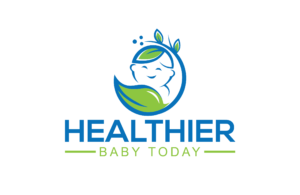Let’s explore how to prevent and treat common infant ailments. The delicate world of parenting requires the well-being of your little one to take center stage. You discover boundless joy when you nurture newborns. However, it is equally important to effectively navigate the challenges associated with promoting baby health. Every child deserves top-quality medical care. As a parent, you must be aware of the most important tips that can help you give your child the best possible care.
This comprehensive guide will look into the common health concerns that affect infants. We also dive into the proactive measures that parents can adopt to promote the safety of their bundles of joy. It is imperative to equip parents with the right knowledge on how to promote the optimal well-being of their littlest family members.
Table of Contents
Common Infant Ailments

1. Common Cold
The common cold is a viral infection affecting the upper respiratory tract,
- Symptoms: Runny or stuffy nose and sneezing. It would help if you also watched out for coughing and mild fever.
- Causes: Viral infections, including rhinoviruses.
- Prevention or Treatment: Good hand hygiene and avoiding exposure to sick individuals. Ensure that you keep the baby hydrated. You may use a humidifier. Treatment typically involves supportive care to alleviate symptoms.
2. Ear Infections
An ear infection involves middle ear inflammation. It is commonly due to bacterial or viral infections.
- Symptoms: These include ear pain, tugging at ears, irritability, and difficulty sleeping.
- Causes: Bacterial or viral infections. It is often secondary to a cold.
- Prevention or Treatment: Reducing your child’s exposure to tobacco smoke. Promote breastfeeding. Quick treatment of colds can lower the risk. Antibiotics may be prescribed for bacterial infections. You may need pain relievers to help manage discomfort.
3. Gastroenteritis (Stomach Flu)
Gastroenteritis refers to inflammation of the stomach and intestines. It often results in symptoms such as diarrhea, vomiting, abdominal cramps, and sometimes fever.
- Symptoms: Diarrhea, vomiting, abdominal pain, fever.
- Causes: Viruses (e.g., rotavirus, norovirus) or bacteria.
- Prevention or Treatment: Ensuring proper handwashing, practicing good hygiene, and ensuring the baby receives appropriate vaccinations. Treatment involves maintaining hydration through oral rehydration solutions.
4. Respiratory Syncytial Virus (RSV) Infection
RSV is a common respiratory virus that can cause infections in the lungs and respiratory tract.
- Symptoms: Coughing, wheezing, difficulty breathing, fever.
- Causes: RSV, a common respiratory virus.
- Prevention or Treatment: Frequently wash their hands. Prevent them from getting close to sick individuals. Ensure that your environment is kept clean. You may treat this illness through supportive care, including humidified air.
5. Hand, Foot, and Mouth Disease
Hand, Foot, and Mouth Disease (HFMD) is a common viral illness primarily affecting infants and young children.
- Symptoms: Fever and mouth sores. You should also pay attention to a rash on their hands and feet.
- Causes: Enteroviruses. The most common form is coxsackievirus.
- Prevention or Treatment: Good hand hygiene and avoiding close contact with infected individuals. Treatment focuses on relieving symptoms. This often includes pain relief for mouth sores.
6. Urinary Tract Infection (UTI)

A Urinary Tract Infection in babies occurs when bacteria enter and infect the urinary tract. Although UTIs in babies are relatively uncommon, they can occur.
- Symptoms: These include fever and irritability. Foul-smelling urine and vomiting are other symptoms to pay attention to.
- Causes: Bacterial infection of the urinary tract.
- Prevention or Treatment: Ensure proper hygiene during diaper changes. Prompt treatment of diaper rash is essential. Adequate fluid intake is equally important. Antibiotics are often prescribed to treat UTIs.
7. Roseola
Roseola, also known as the sixth disease, is a viral illness that typically affects infants and toddlers.
- Symptoms: High fever that is followed by a rash.
- Causes: Human herpesvirus 6 (HHV-6) or human herpesvirus 7 (HHV-7).
- Prevention or Treatment: No specific preventive measures. Treatment focuses on managing fever and discomfort.
8. Croup
Croup is a respiratory condition primarily affecting the vocal cords and windpipe.
- Symptoms: These include barking cough and hoarseness. Difficulty breathing is another symptom you should watch out for.
- Causes: Viral infection. This often includes the parainfluenza virus.
- Prevention or Treatment: Always maintain good hand hygiene. Protect your baby from sick individuals. You may also use a humidifier. Medical intervention may be necessary in severe cases.
9. Conjunctivitis (Pink Eye)
Conjunctivitis, also known as pink eye, is inflammation of the conjunctiva, the clear tissue covering the white part of the eye.
- Symptoms: Redness, swelling, and discharge from the eyes.
- Causes: Bacterial or viral infection or allergic reaction.
- Prevention or Treatment: Common preventive measures include practicing hand hygiene and avoiding touching the eyes. If the cause is bacterial, prompt treatment with antibiotic eye drops may be necessary.
10. Diaper Rash
Diaper rash is a joint skin irritation in the diaper area.
- Symptoms: Red skin in the diaper area.
- Causes: Prolonged exposure to wetness or friction. It may also be caused by a reaction to diaper wipes or detergents.
- Prevention or Treatment: Change diapers frequently. Ensure that the diaper area is kept clean and dry. You may use a barrier cream and choose diapers and wipes carefully.
As a parent, you must be vigilant about your baby’s health. Their physical well-being is your responsibility. For this reason, it is essential to understand the various symptoms of illnesses among babies and the preventive measures to adopt. This minimizes the risk of common diseases.
You should seek medical advice whenever necessary. A healthcare professional will provide an accurate diagnosis and appropriate treatment for your baby’s illness.
The Best Care for Baby Health

You may have different questions about how to provide appropriate care for your child. In this case, discuss your concerns with your pediatrician. Even if you are tempted to visit a nearby clinic, remember that your pediatrician knows your child best. They know the approach to adopt. As a result, this is a great place to start. Understanding these symptoms and causes allows you to provide your baby with the best possible care.


